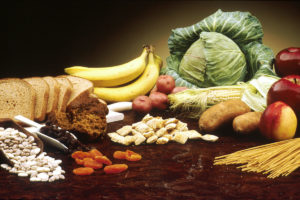 Do you trust food labels? This past month several people have expressed doubts to me over the organic label found on many foods. But actually the organic label on American grown foods is one that people can trust, and it means that a government agency (the US Department of Agriculture) has certified that the food was grown organically. Yes, there are standards for organic food.
Do you trust food labels? This past month several people have expressed doubts to me over the organic label found on many foods. But actually the organic label on American grown foods is one that people can trust, and it means that a government agency (the US Department of Agriculture) has certified that the food was grown organically. Yes, there are standards for organic food.
The worst label on a food is "natural' - it is totally meaningless. View it as a marketing term and nothing more. I personally look for the organic label on all foods whenever possible, and I like meat and dairy products also labeled grass fed.
Here is a great article about some of the terms now used on food labels and what they mean. The food labels discussed are: organic, non-GMO, cage free, free range, pasture raised, grass-fed, and Fair Trade. I would add that I trust food labeled as organic from the USA, Canada, and Europe the most. Unfortunately many (most? almost all?) organic foods from China and Turkey may not really be organic.
Excerpts from the Washington Post: Why Food Reformers Have Mixed Feelings About Eco-Labels
Take a walk through the grocery story; the packages are talking to you, proclaiming their moral virtue, appealing to your ideals: organic, cage-free, fair trade. When I dug into the world of eco-labels recently, I was surprised to find that some of the people who know these labels best are ambivalent about them.
Some ethical labels and what they mean
Organic
It's the biggest and best-known eco-label. Organic farmers follow rules that ban synthetic pesticides and fertilizer. The use of genetically engineered ingredients is prohibited, and there are minimum standards for humane treatment of animals. Organically raised cattle or chickens consume only organic feed, which is the main reason organic eggs are more expensive. Organic farmers may use composted animal manure as fertilizer and control pests with natural predators or by rotating their crops.
The organic standards are monitored by a network of private companies or organizations that certify each organic farmer or processor. Violations of the organic standards also can be prosecuted as federal crimes.
Non-GMO
These foods are largely free of ingredients from genetically modified crops — which at this point are mainly corn, soybeans, sugar beets and canola. The most popular non-GMO label, displaying a butterfly logo, is managed by the nonprofit Non-GMO Project. There is nothing in this standard that requires any particular farming practices, though. Unless they also are certified organic, non-GMO crops typically are grown with conventional pesticides.
Cage-Free
These eggs came from chickens that are not housed in wire cages. They're still indoors, though. "They're living on the floor of a barn," Rebecca Thistlethwaite says. "There may be some perches in there, but they're packed in pretty tightly." Many of these cage-free chicken houses are very large, containing tens of thousands of birds. This label only applies to eggs because chickens grown for their meat aren't ever kept in cages.
Free range
Under the USDA's definition, "free-range" eggs must come from hens that have some access to the outdoors. Thistlethwaite, though, considers this label misleading. "You could have a large barn with 100,000 hens in it, and just a couple little doors," she says. "You go visit that kind of farm, and there might be 30 hens outside that figured out how to climb out those doors."
Pasture raised
This label, if it's backed by a credible certifying organization, actually means a great deal. Pasture-raised chickens actually spend much of their time foraging on pasture. This usually means that they are moved to different pastures on a regular basis. Thistlethwaite says consumers should beware of egg producers who are trying to put that label on their products without actually doing the work. Look for certifications that are enforced. The one that Thistlethwaite prefers is "Animal Welfare Approved." Consumer Reports also has put together a guide.
Grass-fed
This label is mainly found on beef. It means that the cattle never were confined in a conventional feedlot and fed a grain-heavy diet. Much of the grass-fed beef that you'll see in American grocery stores is ground beef, often from Australia. If you search for it, though, you can also find grass-fed steaks and other cuts of beef from cattle raised in the United States. Once again, Thistlethwaite suggests that consumers look for third-party certification, for instance, from the American Grassfed Association.
Fair trade
This label appears most often on coffee or chocolate, but sometimes on bananas. It is managed and verified by a couple of different fair trade certifying organizations. Fair trade coffee producers are guaranteed a minimum price for their product. Historically, that minimum price is higher than the standard market price. Right now, it's 30% more. For the most part, fair trade products also were grown by small farmers who are organized into cooperatives.
